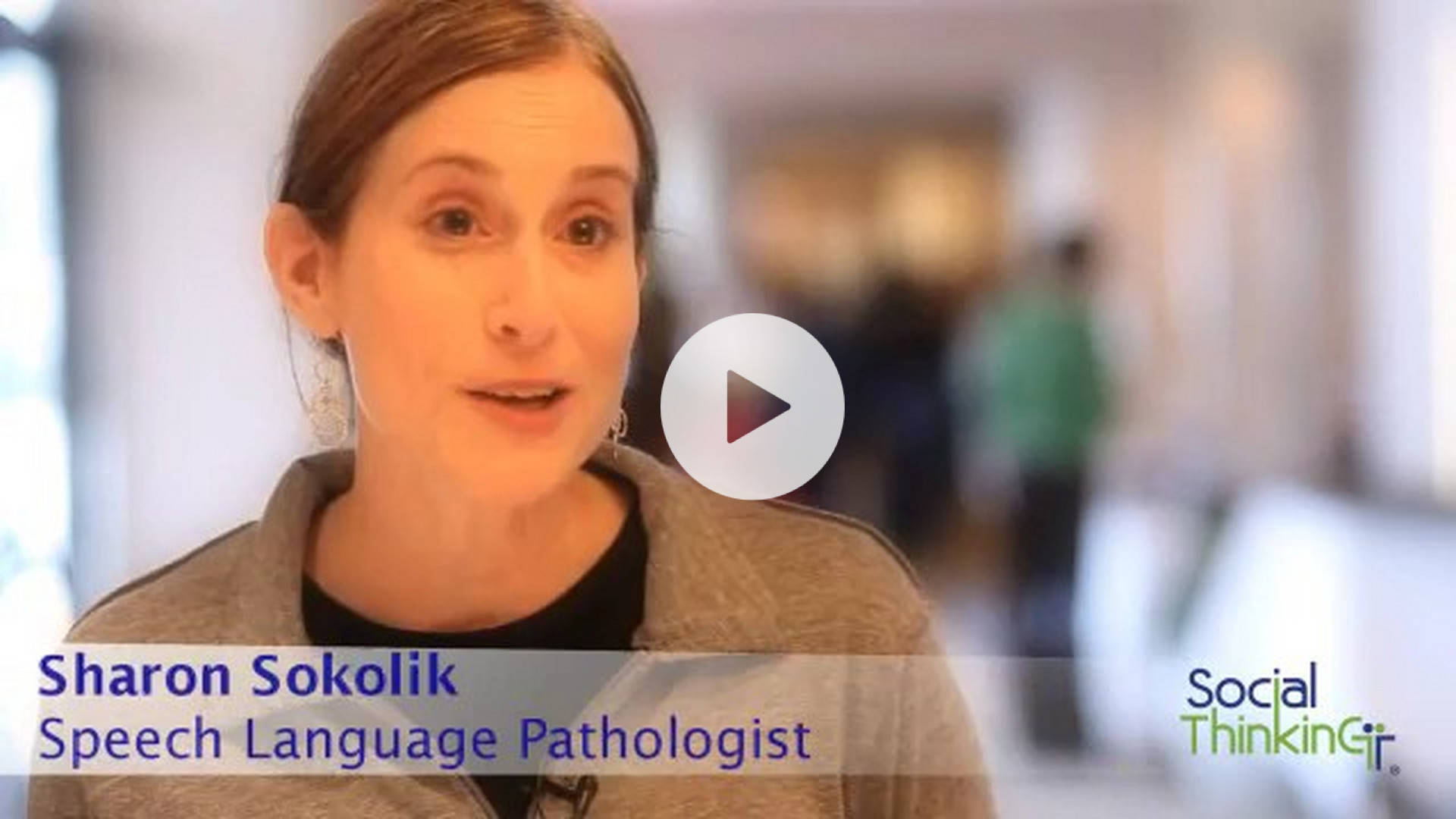Teaching Social Thinking to Early Learners Through Stories and Play-Based Activities
In this course you will learn how to guide children’s early social learning and play experiences to strengthen social competencies and classroom learning. Using video examples, multisensory lessons, and play, we provide strategies to teach children core Social Thinking concepts to help them learn in a group, think about others, use their whole body to listen, etc. This course teaches parents and professionals to implement with fidelity our award-winning curriculum, storybooks, and music collection: We Thinkers! Volume 1 Social Explorers (formerly The Incredible Flexible You!). The vocabulary and strategies are adaptable for use with other activities and age-appropriate literature.
Who should attend
Interventionists supporting ages 4 - 7. At our conferences we share our latest frameworks, lessons, and strategies for teaching social thinking with a wide variety of interventionists, including: speech-language pathologists, special and general education teachers, social workers, counselors, clinical and school psychologists, occupational therapists, behavior specialists, and school administrators to name a few. It’s also used by family members and caregivers across settings.
- Description
- What You Will Learn
- Schedule
- CE Credit
Course Content Disclosure: While this course includes information on other products and the work of other authors, it primarily focuses on the content included in the We Thinkers! Volume 1 Social Explorers curriculum guide and storybooks to teach this information with fidelity.
This course introduces professionals and parents to the many important facets of development that underlie social learning in preschool- and early elementary-age children. What looks like pure fun to us has important social consequences for the developing mind. The ability to participate in collaborative play and learn as part of a group depends upon having a flexible brain, competent language ability, self-regulation, and solid social-emotional development as well as the executive functioning skills to multitask the use of it all. Educational standards highlight the importance of classroom listening and collaboration, which are hallmarks of developmental learning in preschool and early elementary years. This course is designed to give participants knowledge of the key researched components of social-cognitive development from birth to age 5 as they connect to the core concepts taught through our curriculum. Social-emotional growth and executive functioning/self-regulation—and their interactive impact on socio-communicative abilities—will also be explored from a research perspective. This course will focus on how to put the research and best practices of teaching social information into action. We will introduce five Social Thinking Vocabulary concepts that have been adapted for children ages 4-7: thoughts and feelings, the group plan, thinking with your eyes, body in the group, and whole body listening. We will explore methods to teach these concepts through storybooks, music, structured activities, and play. We will also look at different strategies for service delivery in a variety of settings. Strategies for home and school are designed for young children with average to strong language and learning abilities.
Note: Treatment refers to using conceptual and strategy-based frameworks to help individuals improve their social competencies.
Upcoming Conferences
We are currently not offering this course at an in-person conference, however we have over 20 online training courses taught by thought leaders in social competencies, self-regulation, executive functioning, and more.
- Identify at least three (3) key milestones that underlie the development of social cognitive skills from birth to age 5.
- Explain the difference between a skills-based approach and a social cognitive–based approach.
- Explain why an early learner (ages 4–7) with social learning challenges may struggle to work and learn as part of a group.
- Describe ways to structure learning experiences in preschool and early elementary settings to promote social and emotional learning.
- Describe ways to teach at least three (3) Social Thinking Vocabulary concepts to students ages 4–7.
Upcoming Conferences
We are currently not offering this course at an in-person conference, however we have over 20 online training courses taught by thought leaders in social competencies, self-regulation, executive functioning, and more.
This agenda may change without notice.
| 7:30-8:30 |
Use social competencies to problem solve how to sign in, find a seat, and enjoy a cup of coffee or tea while getting to know fellow attendees. |
| 8:30-10:15 | Explore the difference between a skills-based approach and a social cognitive–based approach in teaching social skills to young learners. Introduce the key components of social cognitive development from birth to age 5. |
| 10:15-10:30 | Break |
| 10:30-12:00 |
Best practices for teaching Social Thinking curriculum to early learners using Social Thinking Vocabulary. Introduce the concepts thoughts and feelings, group plan, and thinking with your eyes. Practical strategies to teach these concepts through storybooks, music, structured activities, and play. |
| 12:00-12:50 | Lunch provided |
| 12:50-2:15 | Social Thinking Vocabulary: body in the group and whole body listening. Practical strategies to teach these concepts through storybooks, music, structured activities, and play. |
| 2:15-2:25 | Break |
| 2:25-3:45 |
Explore frequently asked questions about implementing the Social Thinking Methodology for early learners. Bringing it all together: using Social Thinking Vocabulary as means of giving effective feedback. |
Upcoming Conferences
We are currently not offering this course at an in-person conference, however we have over 20 online training courses taught by thought leaders in social competencies, self-regulation, executive functioning, and more.
We are proud to be a continuing education provider for Speech-Language Pathologists, Social Workers, Marriage and Family Therapists, Clinical and School Psychologists, and Certified Counselors, such as Licensed Professional Counselors, Licensed Mental Health Counselors, Licensed Professional Clinical Counselors, and others.
We offer continuing education units/credits/clock hours through:
- ASHA: American Speech-Language-Hearing Association
- CES: Commonwealth Educational Seminars
- NBCC: National Board for Certified Counselors
- And more!
Upcoming Conferences
We are currently not offering this course at an in-person conference, however we have over 20 online training courses taught by thought leaders in social competencies, self-regulation, executive functioning, and more.









